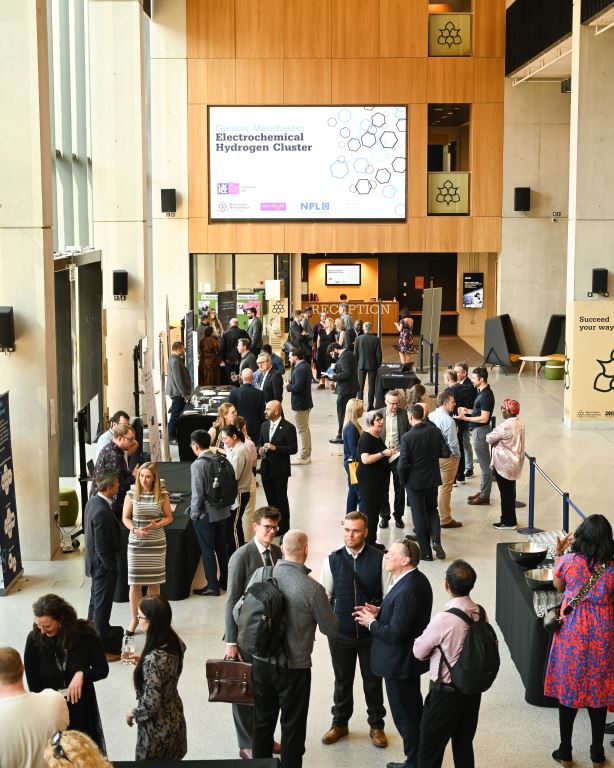Manchester is placing itself in prime position to become the home of a new national facility that will be central to the UK’s ambition to be a leader in hydrogen innovation.
Hydrogen is one of a handful of new, low carbon solutions that will be critical for the UK’s transition to net zero.
In the UK’s Hydrogen Strategy, the government has outlined a path to delivering decarbonisation and economic benefits from hydrogen that it says will require rapid and significant scale up over coming years.
The proposed Hydrogen Technology Electrolysis and Cell Hub (HYTECH) in Manchester will bring together world leading academics and experts with extensive labs and facilities at a scale that does not currently exist in the UK.
The project will be led by Manchester Metropolitan University in partnership with the University of Manchester, The Royce Institute, University of Salford, National Physical Laboratories together with the Greater Manchester Combined Authority.
Amer Gaffar, director of the Manchester Fuel Cell Innovation Centre at Manchester Met, said: “The experience of many years of successful hydrogen research and development projects makes Greater Manchester an ideal place to host a national hub of this type.
“Our combined experience, knowledge, technical expertise and delivery programmes has enabled us to launch this new regional vision which is addressing a critical national need to develop clean electrochemical hydrogen-based technologies in the UK.
“Our ambition is local but built around the global hydrogen market opportunity, supporting swathes of UK and international industry and can be integral to the UK’s ambition to be a global leader in hydrogen innovation.”
The vision for the creation of HYTECH was launched at an event, hosted yesterday at Manchester Met, celebrating the successes of the Greater Manchester Electrochemical Hydrogen Cluster (GMEHC) programme, which is led by the University in partnership with the University of Manchester, The Royce Institute and National Physical Laboratories.
An ambition to position Greater Manchester as a powerhouse of hydrogen, which now also includes the University of Salford, was announced at the event to demonstrate the collective strength in the region’s hydrogen research and innovation.
Launched in 2023, GMEHC has already enabled industrial businesses alongside Small Medium Enterprises to access the research, expertise and facilities to develop and adopt clean, efficient electrochemical hydrogen technologies.
Professor Nigel Brandon OBE FREng FRS, dean of Engineering at Imperial College London and chair of the GMEHC programme, said: “The new HYTECH facility will help connect key research in the region with research, testing and development centres across the UK, supporting both large and small manufacturers, and bringing both regional and national benefit.”
The establishment of HYTECH will consolidate Greater Manchester’s place as the home of hydrogen innovation, with the Trafford Low Carbon Energy Park already in development which will include the largest liquid air energy storage scheme in Europe and one of the largest battery storage schemes in the UK.
Work will now progress to secure the investment needed to develop HYTECH as the region leads the way in building a sustainable, self-reliant hydrogen ecosystem for the UK’s clean energy future.



